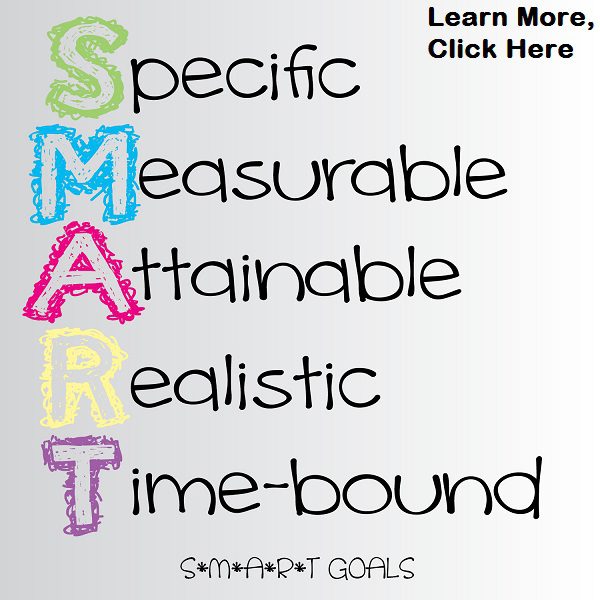I’m pretty sure that just about everyone on the face of this planet has set at least a few goals in their life. However, the number of people who have actually completed the majority of their goals, especially the harder ones, seems to be a lot lower.
So why does this happen? After all, everyone wants the best life they can have.
In all honesty, much of the reason this happens is due to people approaching and setting their goals in counter-productive manners. The best way to accomplish a goal is to be S.M.A.R.T. about your goals.
Check out this helpful article from SUCCESS about goal setting the S.M.A.R.T. way.
The most important benefit of setting goals isn’t achieving your goal; it’s what you do and the person you become in order to achieve your goal that’s the real benefit. Goal-setting is powerful because it provides focus. It shapes our dreams. It gives us the ability to hone in on the exact actions we need to perform to achieve everything we desire in life.
Goals are great because they cause us to stretch and grow in ways that we never have before. In order to reach our goals, we must become better. Life is designed in such a way that we look long-term and live short-term. We dream for the future and live in the present. Unfortunately, the present can produce many difficult obstacles. But setting goals provides long-term vision in our lives.
We all need powerful, long-range goals to help us get past those short-term obstacles. Fortunately, the more powerful our goals are, the more we’ll be able to act on and guarantee that they will actually come to pass. What are the key aspects to learn and remember when studying and writing our goals?
Here’s a closer look at goal-setting and how you can make it forceful and practical:
1. Evaluate and reflect.
The only way we can reasonably decide what we want in the future and how we’ll get there is to know where we are right now and what our current level of satisfaction is. So first, take some time to think through and write down your current situation; then ask this question on each key point: Is that OK?
The purpose of evaluation is twofold. First, it gives you an objective way to look at your accomplishments and your pursuit of the vision you have for life. Secondly, it shows you where you are so you can determine where you need to go. Evaluation gives you a baseline to work from. Take a couple of hours this week to evaluate and reflect.
See where you are and write it down so that as the months progress and you continue a regular time of evaluation and reflection, you will see just how much ground you’re gaining—and that will be exciting!
2. Define your dreams and goals.
One of the amazing things we have been given as humans is the unquenchable desire to have dreams of a better life and the ability to establish and set goals to live out those dreams. We can look deep within our hearts and dream of a better situation for ourselves and our families. We can dream of better financial, emotional, spiritual or physical lives. We have also been given the ability to not only dream, but pursue those dreams—and not just pursue them, but the cognitive ability to lay out a plan and strategies to achieve those dreams. Powerful!
What are your dreams and goals? This isn’t what you already have or what you have done, but what you want. Have you ever really sat down and thought through your life values and decided what you really want? Have you ever taken the time to truly reflect, to listen quietly to your heart, to see what dreams live within you? Your dreams are there.
Image Credit: bec2014
To see the rest of this article as well as other personal development articles, SUCCESS



